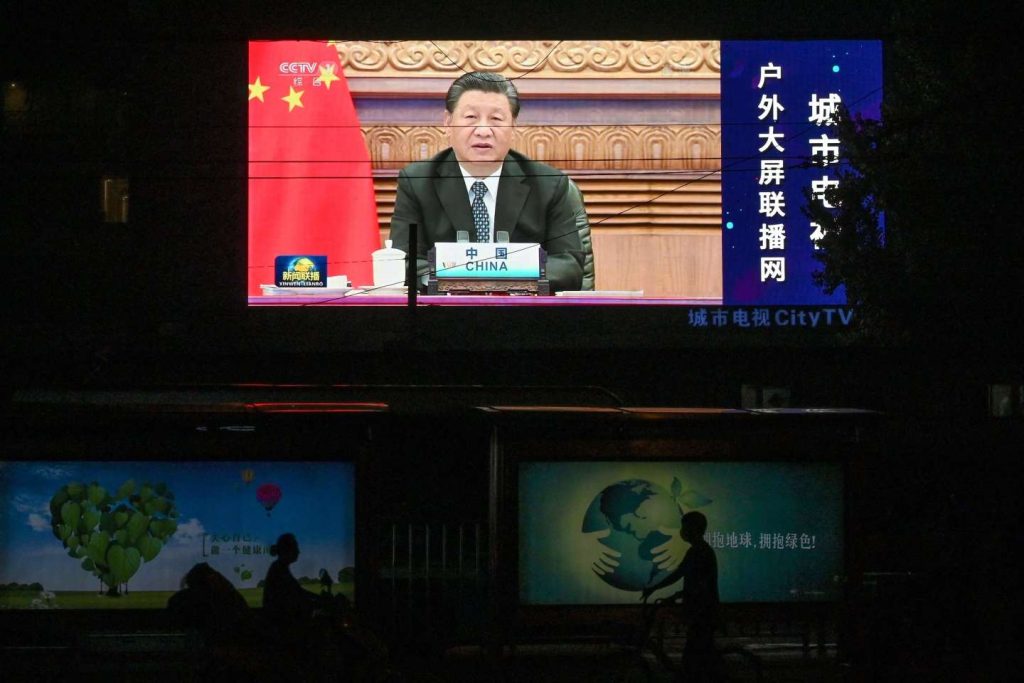
China is trying to unite the south to “beat the small clique” of the Group of Seven
China has big ambitions for the 14e BRICS Summit chaired by Xi Jinping, by video, Thursday, June 23: This gathering of five major emerging countries (Brazil, Russia, India, China, South Africa) opened to other countries in the south, “Injecting more positive energy into a world facing turmoil and challenges”According to Wang Wenbin, a foreign ministry spokesman.
It is ‘To encourage the international community to pay attention to the issue of global development by taking practical measures, explain People’s Daily newspaper, the official organ of the Chinese Communist Party. The paper reports that as early as 2017, China created the BRICS Plus format, linking five other countries at the top, and that now it’s all about moving forward.
The Global Times It is more visible. Beijing hears Countering the tendency of Western countries to form small groups with the G7. China intends to “Bring fresh air to a world that includes a just global system of government rather than one dominated by American hegemony”, sums up daily nationalism. Around the summit itself, several events will also be held, which should also be chaired by Xi Jinping, in particular the BRICS Business Forum on June 22 and the “High-level Dialogue on Global Development” on June 24. And this summit will be held immediately before that, the Group of Seven (June 26-28), chaired by Germany.
Initiative limits
What countries can be associated with the BRICS? On May 19, a virtual – preparatory meeting of foreign ministers for the summit was followed by a dialogue with representatives of Argentina, Egypt, Indonesia, Kazakhstan, Nigeria, the United Arab Emirates, Saudi Arabia, Senegal and Thailand.
If Beijing’s desire to unite the countries of the South to increase its weight against the West is clear, then China is aware of the limits of its initiative. “It must not reduce the effectiveness of the grouping through excessive participation and this group must also protect itself from potential friction caused by different demands or conflicting interests.”notes economist Chen Fengying in China daily.
India and China have not only failed to resolve their border dispute in Ladakh, but the differences are also evident on the Ukraine question. Of the 14 countries that participated in the May 19 Dialogue, seven countries voted in favor of the UN resolution in support of Ukraine, six countries abstained and, of course, Russia voted against it. Germany also invited the leaders of South Africa, Argentina, India, Indonesia and Senegal to the G7 summit. It will be difficult for these countries to join some kind of front Against the G7.
You have 35.64% of this article left to read. The following is for subscribers only.

“Unapologetic pop culture trailblazer. Freelance troublemaker. Food guru. Alcohol fanatic. Gamer. Explorer. Thinker.”
